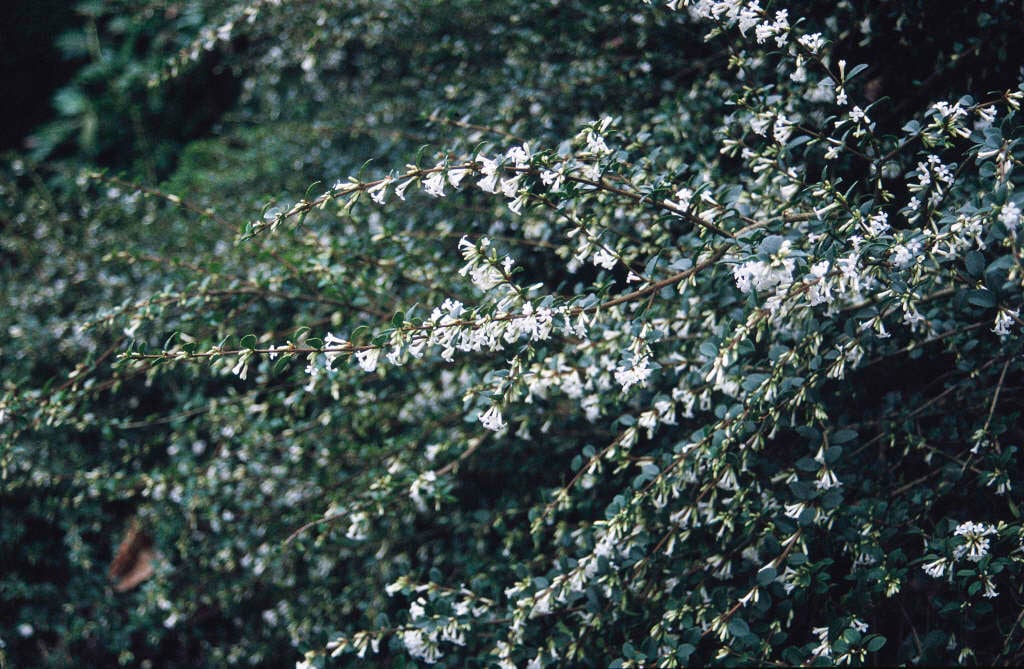Osmanthus delavayi
Delavay osmanthus
A dense, rather slow-growing medium-sized evergreen shrub with rounded or ovate, dark green leaves to 2.5cm in length. Abundant small, highly-scented white flowers in clusters are followed by small, blue-black berries

Buy this plant
Size
Ultimate height
2.5ŌĆō4 metresTime to ultimate height
10ŌĆō20 yearsUltimate spread
2.5ŌĆō4 metresGrowing conditions
Moisture
░┬▒▒¶▒¶ŌĆōd░∙▓╣Š▒▓į▒╗ÕpH
Acid, Alkaline, NeutralColour & scent
| Stem | Flower | Foliage | Fruit | |
| Spring | White | Green | ||
|---|---|---|---|---|
| Summer | Green | |||
| Autumn | Green | Black Blue | ||
| Winter | Green |
Position
- Full sun
- Partial shade
Aspect
SouthŌĆōfacing or WestŌĆōfacing or NorthŌĆōfacing or ĘĪ▓╣▓§│┘ŌĆōf▓╣│”Š▒▓į▓Ą
Exposure
Exposed or Sheltered Hardiness
H5Botanical details
- Family
- Oleaceae
- Native to GB / Ireland
- No
- Foliage
- Evergreen
- Habit
- Bushy
- Genus
Osmanthus can be evergreen shrubs or small trees with leathery, opposite leaves and small, usually fragrant, tubular white, yellow or orange flowers with 4 lobes, followed by ovoid blue-black fruits
- Name status
Correct
- Plant range
- SW China
How to grow
Cultivation
Grow in well-drained soil in sun or partial shade; good for woodland gardens
Propagation
Propagate by seed or semi-hardwood cuttings
Suggested planting locations and garden types
- Coastal
- Low Maintenance
- Banks and slopes
- Hedging and screens
Pruning
Pests
Generally pest-free
Diseases
May be susceptible to honey fungus
Osmanthus delavayi
Delavay osmanthus
911▒¼┴Ž
The 911▒¼┴Ž is the UKŌĆÖs gardening charity, helping people and plants to grow - nurturing a healthier, happier world, one person and one plant at a time.